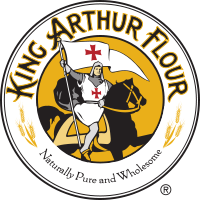According to a recent report, PR professionals are among the worst offenders for exploiting interns. In our field, it is not uncommon for unpaid interns to perform job functions that could be performed by paid staff, meaning that they could be entitled to at least minimum wage.
For organizations offering unpaid internships, this functions as a double-edged sword: yes, short-term bottom lines benefit by the assistance that interns can provide for free, but the organizations could also be limiting the pool of talent to only include those able to work without financial compensation, potentially cutting out many qualified and talented individuals – after all, most students have college loans and monthly utility bills to worry about.
The catch-22 of the situation, of course, is that it’s hard to imagine a college graduate trying to break into the highly competitive field of Public Relations without completing a minimum of one or two internships. Soon to be enter the job market myself, I am all too familiar with the expectations and pressure that go along with being in this line of work. It isn’t uncommon to hear that a PR student’s GPA is not as significant as his or her experience, or that a decent portfolio is mandatory when walking into an interview.
The effects of this dynamic can be dangerous to the field as a whole. In fact, just this evening, a major question raised at the Rochester PRSA event was why the industry wasn’t becoming more diverse at a pace similar to that of society as a whole. According to David Grome, there were “several comments about the event’s location (Brooks Landing) being “difficult to find” or “near some sketchy areas,” which might be part of the challenge to unite people behind the issue of diversity. We tend not to go, literally and figuratively, where we’re not familiar.”
Is it too far a stretch to correlate the low amount of diversity in PR to the frequently unpaid internships that are all but a necessity to those trying to join the field?
Though I think there is definitely merit to that question and that it deserves to be discussed, I don’t necessarily think that all internships should be paid.
I’ve been fortunate enough to have completed five internships during my undergraduate career. Of them, two have been unpaid and three have been paid – giving me a unique perspective on this issue.
I learned an insane amount during one of my unpaid internships and built a relationship with one of the best PR professionals in the area – someone I am still lucky enough to consider a mentor today. Looking back, the experience proved to be worth every dollar of financial sacrifice that was associated with it. To those who would argue that they can’t afford to work for free despite the potential value in the experience, I would challenge them to reconsider.
The fact of the matter is that most unpaid internships are part-time (mine was only about 12 hours per week) and during normal business office hours, meaning that there is still plenty of time to have a part-time, paid job during nights and weekends. Not only that, but I also know that it is very possible to excel academically during a semester including both paid jobs and unpaid internships.
Unpaid internships are not limited to financially stable individuals. They are limited to individuals with professional priorities and excellent time-management skills.
I wonder what Vince Vaughn and Owen Wilson would think.




















